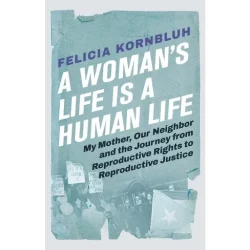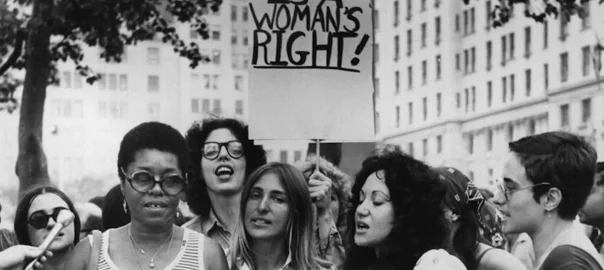Podcast: Play in new window | Download
Subscribe: Apple Podcasts | RSS
We talk with historian Felicia Kornbluh about her book, A Woman’s Life Is a Human Life: My Mother, Our Neighbor, and the Journey from Reproductive Rights to Reproductive Justice.
Then we re-air a clip from our conversation with Dolen Perkins-Valdez about the famous reproductive justice case that inspired her novel Take My Hand.
Writers Voice— in depth conversation with writers of all genres, on the air since 2004.
Like us on Facebook at Writers Voice with Francesca Rheannon, on Instagram @WritersVoicePodcast or find us on Twitter @WritersVoice.
Love Writer’s Voice? Please rate us on your podcast app. It really helps to get the word out about our show.
Key words: International Women’s Day, reproductive rights, reproductive justice, abortion rights, reproductive choice, Roe V. Wade, women’s history month, podcast
Introduction
 This week’s episode celebrates International Women’s Day. It’s the first March 8 since the US Supreme Court overturned Roe V. Wade, relegating women instantly to the status of second class citizens without control over their reproductive choices. Choice still exists in those states that protect it—but for how long? A decision could come soon banning access to abortion medication throughout the land.
This week’s episode celebrates International Women’s Day. It’s the first March 8 since the US Supreme Court overturned Roe V. Wade, relegating women instantly to the status of second class citizens without control over their reproductive choices. Choice still exists in those states that protect it—but for how long? A decision could come soon banning access to abortion medication throughout the land.
The fight continues: on March 7, five women sued the state of Texas after being denied medically necessary abortions, asserting the state’s draconian abortion ban threatens the lives and health of pregnant people.
Reproductive Rights, Reproductive Justice
We center our episode on the fight for reproductive choice. Our first guest is Felicia Kornbluh. Her book, A Woman’s Life Is A Human Life, chronicles the spell-binding story of how the first law legalizing abortion in the US was passed—in New York in 1970.
But it also tells a second parallel story, the fight for reproductive justice, protecting poor women against involuntary sterilization.
Both stories touched Kornbluh personally. Her mother, Beatrice Kornbluh-Braun, was prominent in the fight for abortion rights; her neighbor, Dr. Helen Rodriguez-Trias, who lived across the hall in her childhood home in a New York apartment building, was instrumental in the fight against involuntary sterilization of poor women of color.
About the Author
Felicia Kornbluh is Professor of History and Gender, Sexuality, and Women’s Studies at the University of Vermont. She’s the author of two previous books, The Battle for Welfare Rights and Ensuring Poverty: Welfare Reform in Feminist Perspective. She has also served as a board member for Planned Parenthood.
Listen to an Excerpt from A Woman’s Life Is a Human Life
(Music Credit: Abortion Song by The New Haven Women’s Liberation Rock Band from the album Papa, Don’t Lay That Shit On Me, â„— 2005 Rounder Records. Distributed by Concord.)
Reproductive Justice: the Relf Sisters Case
In her interview, Felicia Kornbluh spoke about the pivotal case for reproductive justice in the US, Relf v. Weinberger, which resulted in a prohibition against the use of federal funds for involuntary sterilization.
Last September, we spoke with Dolen Perkins Valdez, whose novel Take My Hand was based on that case. We play an excerpt from that interview. Listen to the whole interview here.

